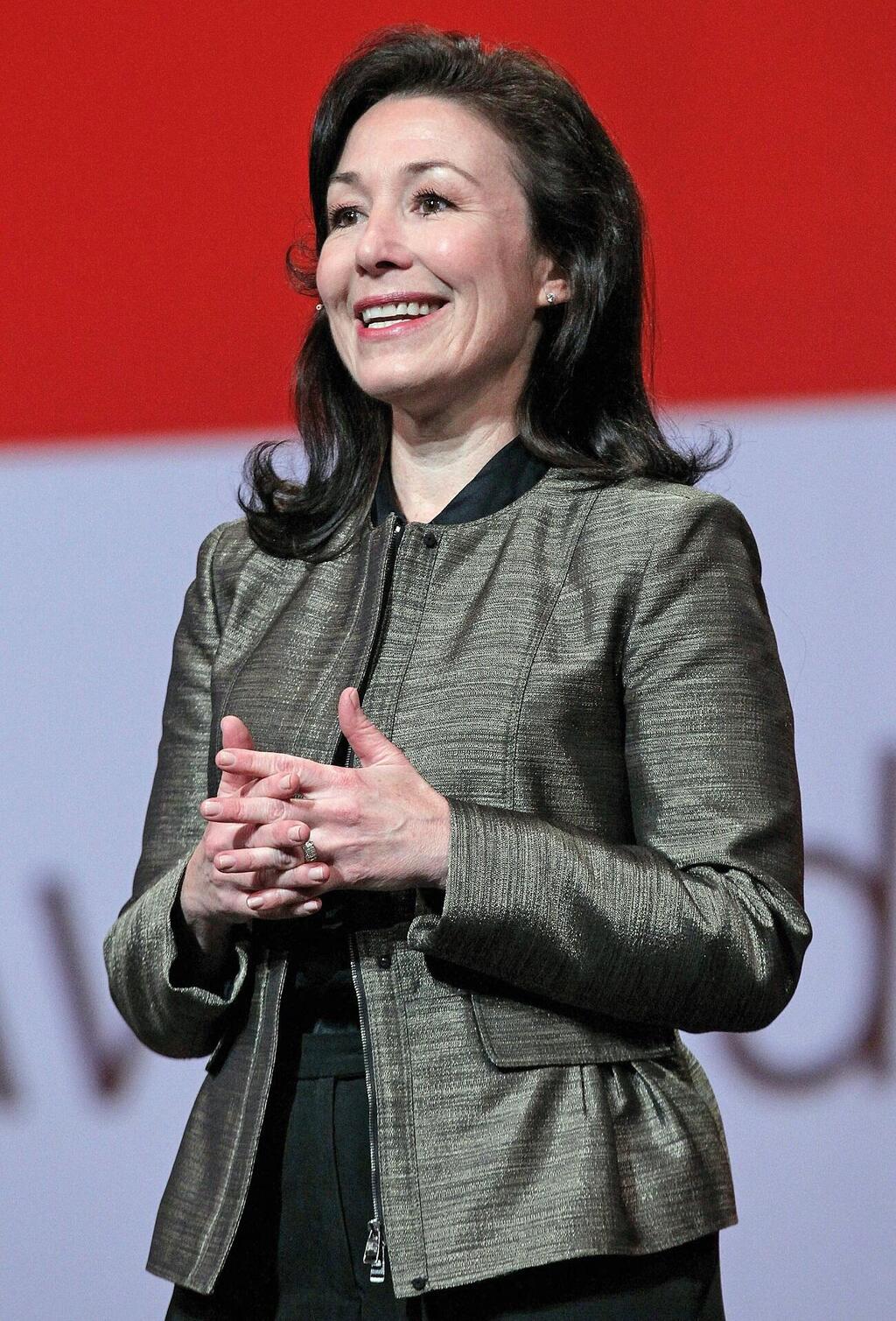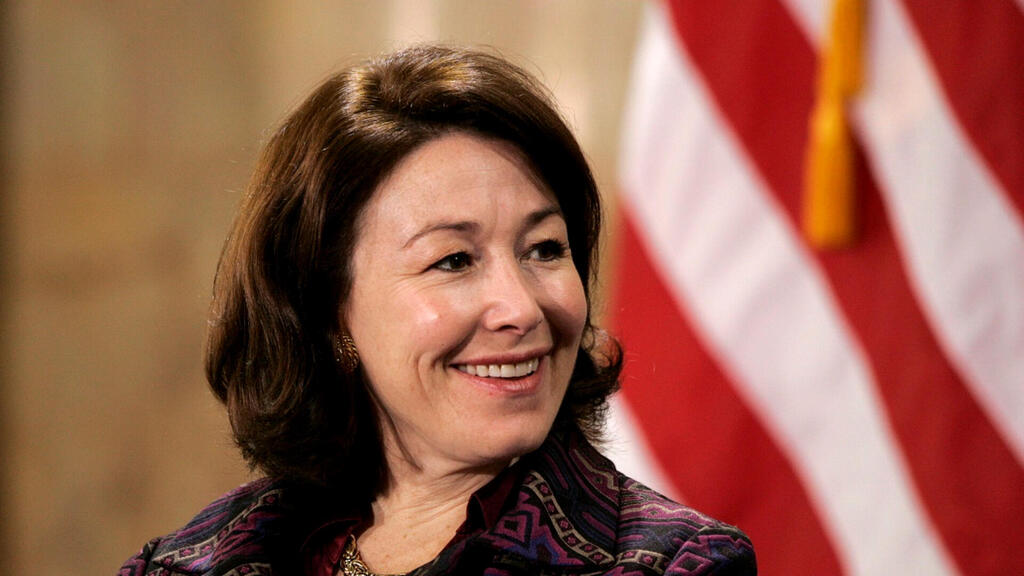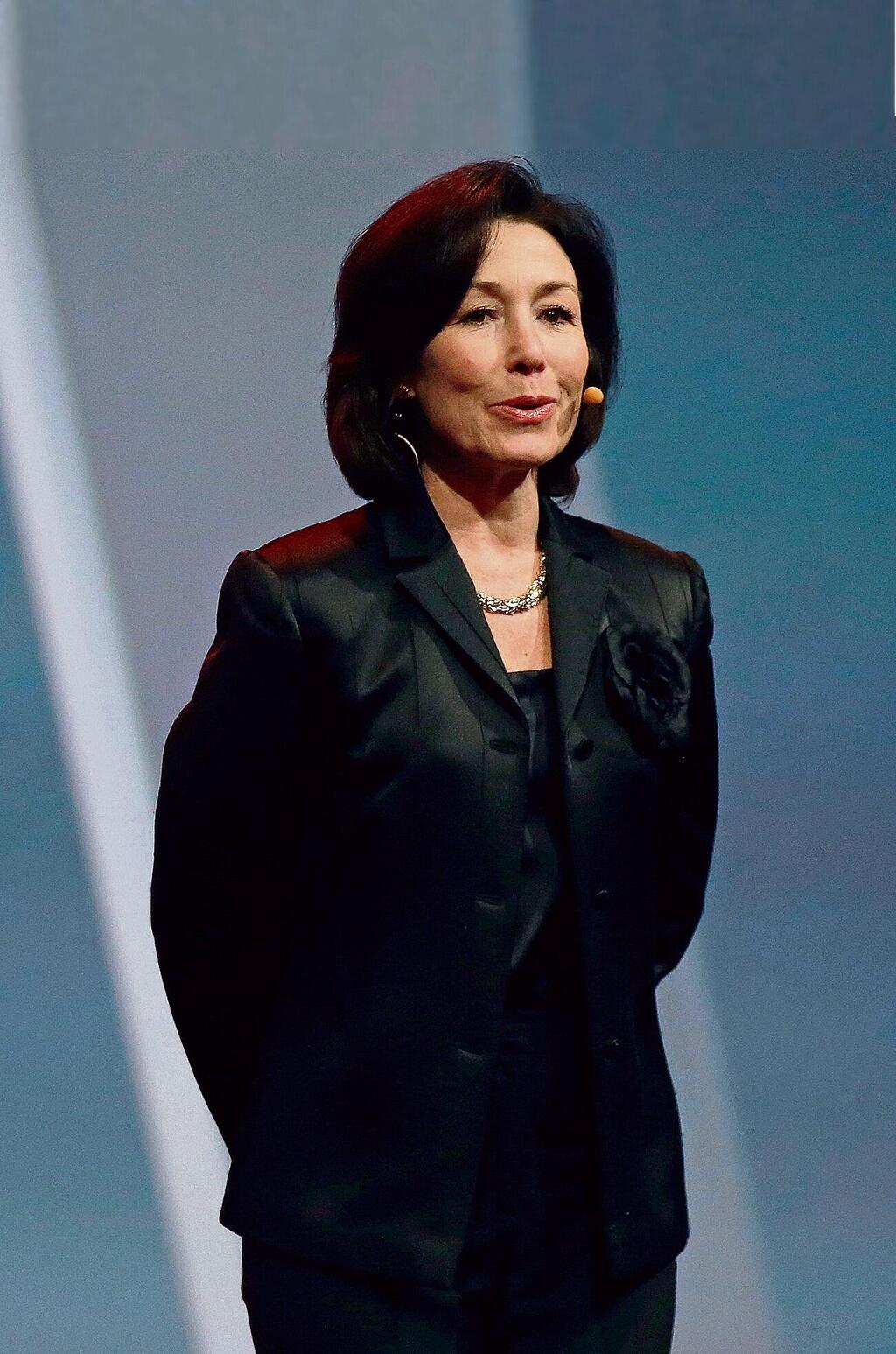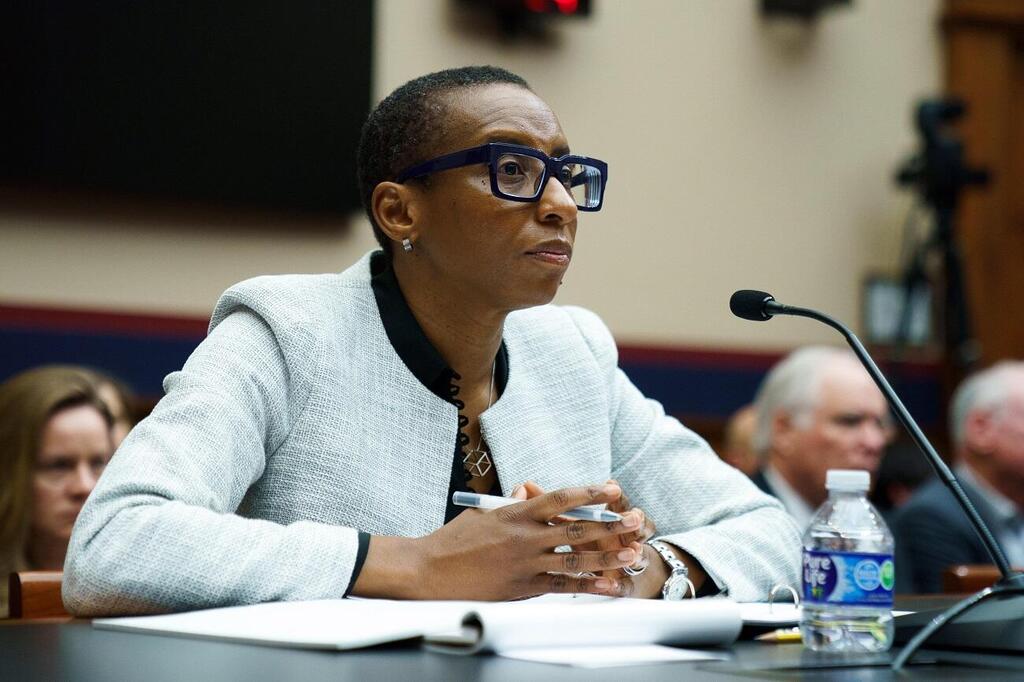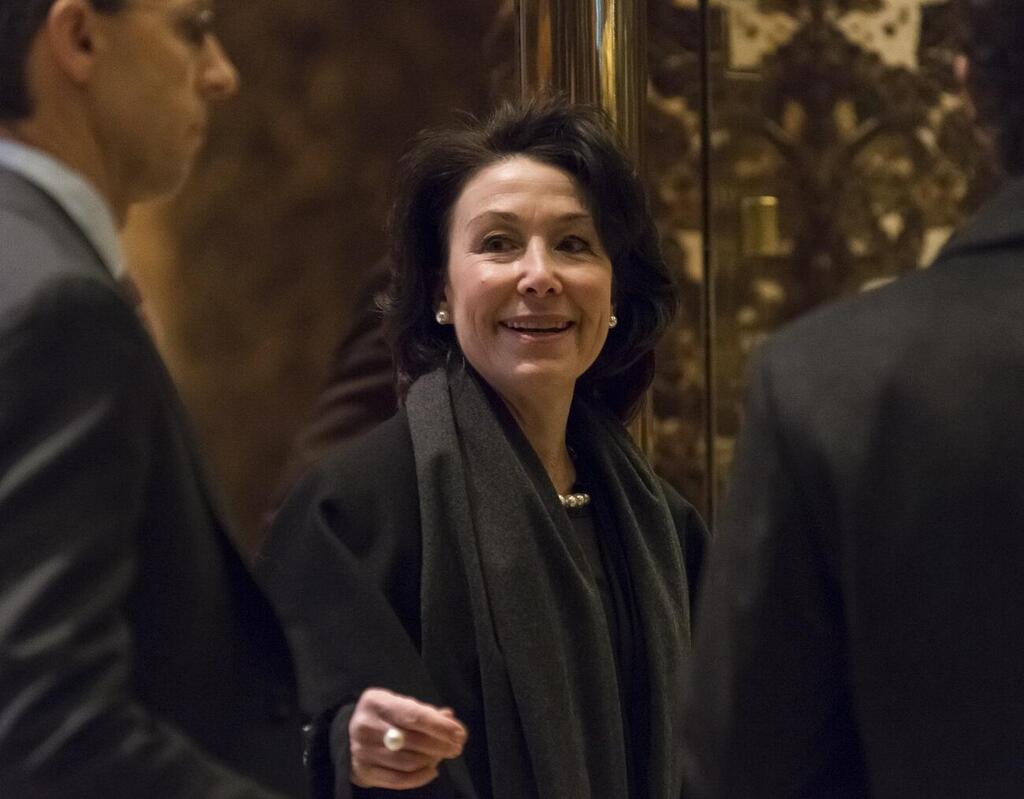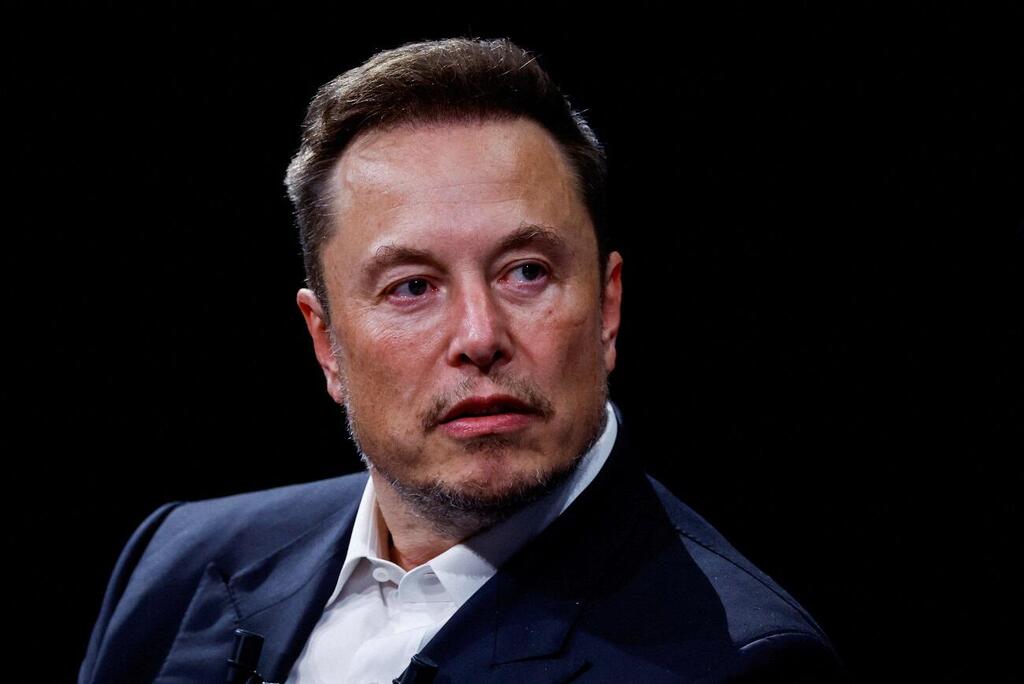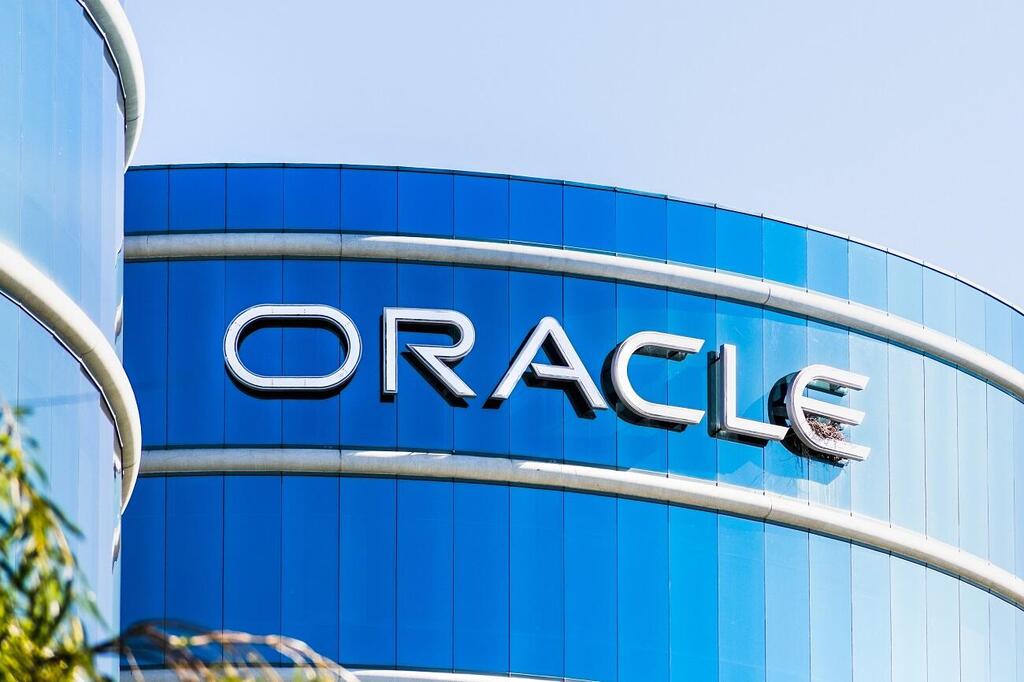Consider this: The highest-earning woman in the American business world, who earned a staggering $138 million in 2022, including various bonuses and special grants (though reverting to a more modest $5 million in 2023), and was recognized more than once as the leading female wage earner in Fortune magazine's list of the top 1,000 wealthiest – born in Holon, Israel. Yes, Holon!
Read more:
She also lived through the Six-Day War there – at five years old, running to the shelter with her panicked mother and her pot while her father was on reserve duty – and all those memories are still alive in her.
So, it's almost inevitable to present her with the immediate, pressing question: If you had stayed in Holon – and if you had become an ordinary Israeli – would you still have achieved such remarkable success? And Safra Catz– God bless her for her diplomacy and caution – answers me without committing.
“I have no idea. My life growing up here has continuously exceeded my dreams. Continuously, my son accuses me of what is called “wishcasting”, where you say something about the future because it's what you wish. And I say back to him, ‘every one of my wishes has come true. And has been way better than I ever wished. Maybe because I have modest wishes,” she says as she smiles sweetly.
Alright, let's not downplay the achievements of Safra Catz, 62, CEO of Oracle, the tech giant founded by Larry Ellison, whom Catz succeeded in 2014 when Ellison stepped aside.
We meet in a private room on the top floor of the Sheraton during her high-profile several-day visit to Israel – her first since the war. She was in Kfar Aza and the IDF headquarters in Tel Aviv, and met with Prime Minister Benjamin Netanyahu and Minister Benny Gantz. And me, of course.
After all, this not-so-tall woman with the eternal bob – a defining icon of Silicon Valley for the past two decades – is much more than just a leading tech billionaire; she's one of the sharpest, most respected and sought-after minds in America. She was considered for two roles in the Trump administration – which she declined – and sits on the weighty boards of major banks and even the Disney corporation, never resting for a moment.
Beyond that, she's a staunch supporter of Israel, leaning relatively to the right, ensuring that all Oracle sites worldwide – even in hostile countries – showed support for Israel during this period. She ensured the company donated military equipment, including telescopic sights and eye protection equipment, worth two million dollars, and granted every Oracle employee in Israel an additional salary as a bonus for the difficult period.
She is, after all, just a small woman, a business shark wrapped in a package of eternal smiles, optimism and a soft voice that sharpens into staccato and incisive tones when she wants to stress a point.
She repeatedly says, "Believe me, you'll see," when talking about Israel's future in the most optimistic sense of the word. It's somewhat hard not to believe her; after all, we're talking about Safra Catz, one of the most brilliant women in America and undoubtedly the most well-compensated.
And she's also married to an Israeli, Gal Tirosh, who enables her to be all she can be while he is content with writing, mentoring, coaching soccer and being known as Safra Catz's husband.
In short, she's a woman in whom it's tempting to place your trust; all her wishes to date have come true – and much better than she hoped – and currently, she has one main wish: for things to be good here in Israel.
I meet her as I’m shrouded in the all-Israel feeling of despondency marred by grief and additional bereavement after another week of bloody war and painful losses on the battlefield, and she flashes that convincing smile of hers, refusing to follow suit.
"Look out the window," she shows me Tel Aviv with its towering glass skyscrapers. “That's not going anywhere. Look at it. It's incredible. Look at a picture of what Israel was in 1929, before it was a country. Look at what it was even in 1951 when my father came to Israel from Romania as a child.
“Israel went from third-world status to the first world. It is one of the most incredible economic stories in history. I know only one other country that has done anything close to that and that is South Korea. Again, an incredible country and no one's talking about getting rid of South Korea either, you know, except their neighbor.”
We both chuckle for a moment, as neighbors are entirely the current Israeli problem, but Catz doesn't stray from the contemporary Israeli narrative: no stopping until victory.
October 6 - a white night
October 7 caught her on October 6. “It was still October 6 in Los Angeles on the West Coast, and we were coming from a Shabbat dinner at my son's girlfriend's parents’ house in Los Angeles. And we're driving back to our hotel. And I start to see it on Twitter, on telegram, on all of these sites and so we basically stayed up all night as this whole thing unfolded and then we flew to the East Coast, to our home and when we got home my husband said to me, ‘This is the worst day of my life.’
“I can tell you we have not slept a normal night since then. You're always looking at the news. You're always worrying about the soldiers. You're always worrying about the people. You're just always worried”.
And did something change when you came to Israel?
“Yes, because when you're far away, you have a lot of emotions. You're shocked, you're sad, you're angry, and when you're far away, you're trying to figure out how to help, and it can be frustrating. And so you argue with the media that they have an unbalanced view. You know how the lie overtakes the truth all the time. Or you donate money. For every place that we donated, we told them, ‘This is going to be a long time, there are going to be bigger needs. Come back to us later when you know more. We won't say, ‘oh, we already gave to you.’
“After October 7, my husband told me that I'm not smiling in pictures anymore. But being here in Israel and seeing how strong everyone is and how everyone's moving along and also being among everyone. It took me a day or two, but I'm now smiling in pictures again. I was at an event yesterday with high-tech startups and companies, and to feel that life and optimism back really made me smile.”
Do you think the war should be ended anytime soon?
“I don't give advice to people who know a thousand times more than me. But the current state of affairs, where a house exploded, and a man and his mother died, and the father is in the hospital or where people come and aim at children and kill old women in the middle of our population centers. Why just the Jewish nation have to suffer like that? No other country would stand for that. Period. This is an opportunity to change the facts on the ground.”
So we should keep on going and to what extent?
"The most important thing that a government does for its citizens is keep them safe. Until that can be assured, they have to do everything they can to that end."
Even if that costs us years of war or losing many lives?
"Israel has had years and years and years of wars and yet, over the years, Israel has become so incredible that other nations wanted to make relations and so why should the only Jewish nation have to constantly live in fear for their lives? The government owes that to its people and that's not free."
Let's talk about the government.
“I can't really talk about something like that. It's not proper for me, I cannot vote in Israel. What I would say is when you're dealing with a circle of enemies around you, you should not add to that by fighting amongst yourselves. In my personal opinion, everybody should focus on saving Israeli lives and this, I would say it's not a good time to get distracted with fights amongst yourselves.”
And still, far-right ministers are making statements that are damaging to us.
“This is a free country. People say whatever they want. You don't go to jail for speech. Look more at what the people are actually doing. They're going to fields and picking oranges, they're making packages for soldiers. Standing with the microphone is one thing and anyone can do that, but what's been really incredible is what the citizens of Israel are doing for each other. And that's really what I look at."
What factors contributed to the October 7 massacre? Was it Hamas exploiting Israel's internal divisions, or did it take advantage of the government and military's overconfidence in handling it?
”I have no idea. I could never think like they think. I cannot tell you their calculations. But I would say one thing. They told us in all of their statements that their charter is to destroy Israel and exterminate the Jews. Other countries have said the same thing. It's also in the Houthis’ charter. It's in Iran's direct messaging. I think that when they tell you they want to kill you, you should believe that. I think that's the lesson.”
'You cannot blame the victim'
She must be cautious, of course. Not too political in any direction. Not explicit, even if clear. However, on one issue she agrees: the resurgence of antisemitism in the U.S.
It's impossible to overlook what's happening in cities and on major campuses, even if Catz is convinced that the phenomenon will pass the moment Israel makes it clear that it itself does not intend to do anything similar.
“I'm not at all surprised. I've seen growing antisemitism now for over a decade. My father would point it out to me because he saw this kind of movement in Eastern Europe as a child.
"The reason, in my personal opinion, why they're out there is because they think Israel is weak. They think the Jews are weak, so they stand up strong. If Israel regains its deterrence capability and America regains their deterrence capability and is strong, they will disperse like they always do. We've seen this pattern here in Israel when the terrorists feel strong, they're out in the streets. And when Israel comes in hard, they're hiding under the floor. Every time. It's about strength and determination, and right now, they think Israel is weak"
It appears that the pro-Palestinian narrative is currently more influential among many young Americans.
“It's just like Communism was very popular, because it starts often in the schools, in the universities. Children don't go to the military and start growing up. They're taken away at 17-18 years old from their family, they arrived on these campuses, they have no friends, they want to connect, they're scared. So these brainwashing organizations say ‘come here, let me help you feel connected to a cause, to something important.’ They don't even know the facts.
“The entire movement related to the LGBT for Palestine? I mean, just think how foolish these kids are. They don't even understand the most basic things that there are no LGBT rights in Gaza. It took a long time to grow, and it'll take a while to undo. But the rest of the United States loves Israel. The bulk of the United States, they're with Israel. Believe me, you'll see. The concept that the Jews are the colonizers is truly crazy and reality almost invariably sets in, so I remain optimistic. I have two sons who went through college and came out completely normal and being able to tell the truth from a lie. They went right to these same schools, so these are tiny, tiny groups.
Were you personally involved in donations to the campuses of Harvard, Penn and MIT?
“Yes, absolutely. We already made it very clear that there will be no more millions going in that direction. There has to be a complete clean-out of what's going on there. It cannot be that people screaming that they're pro-genocide, that they're pro-killing Jews. This is not actually free speech. This is harassment and intimidation, and that's not OK. It violates the law and it violates the university policy and they won't stand for it in universities and we won't stand for it at my company.”
Is it possible that Israel erred in its public diplomacy approach and ultimately found itself facing trial in The Hague?
“This is silly. This is the kinds of things that have been going on at the United Nations, at the International Criminal Court and these things are a stain on the world. You cannot blame the victim. Those people who were murdered in Kfar Aza; you cannot blame them because of their murderers. You cannot blame the millions that died in Auschwitz for what the Nazis did to them.
“The hate of the Jews is the most ancient and continuous hate in human history, and you can dress it up any way you want – anti-Israel, anti-government, any way you want. It is basically exactly what it has always been - the Jewish people brought morality to the world thousands of years ago and some people are still mad about it.”
8 View gallery


South Africa lodged petition against Israel in The Hague for allegedly committing genocide in Gaza
(Photo: Reuters)
Will the war change anything?
"I believe that this disastrous catastrophe that Israel suffered will be a light and is already being a light. It's a wake-up call, not for Israel, but it's a wake-up call around the world. It's not only in the United States, it's not only in the universities, it's in all of these countries in Europe. Things are going to change, and it often unfortunately takes an enormous sacrifice on the part of the Jewish people, but it ultimately brings light to the world. Just like it always has."
Optimism à la Catz
It might seem easier to remain optimistic when you are an American billionaire with a return flight ticket at the weekend, but Catz still brings a deeper level of commitment and understanding. She is convinced that the best is yet to come. As someone who was involved in the negotiations leading up to the Abraham Accords, she still sees a promising future for them.
"It's not today, it's not tomorrow, but it's absolutely in the future. I have no doubt at all about that. Just listen to what they tell us. The Saudi leadership is very clear that they still view a normalization next and I'm very optimistic. Remember the Abraham Accords is not only between Israel and an Arab country, it involves the role of the United States. And I believe that this administration and whatever is next will be extremely supportive of additional normalization in the region, it's a very important region as we can see, even in what's going on in the Red Sea, and continued normalization is in everybody's interest, not just Israel. Everybody's interest."
Where do you see Israel in five years? Is it a democracy? A thriving country?
"Listen, you're in the center, so you can't really see further away, but I can tell you countries around the world and countries that have new relationships with Israel and countries who have decades of relationships with Israel still see Israel as a shining light of innovation, as a central point. I've talked to investors. They're happy to make new investments in Israel. They're thrilled about their offices in Israel if they have them. This is a hard time, just like COVID was a hard time. We lost people during COVID, we suffered, children suffered, not being at school. People missed whole years of their lives during that, and Israel came back very strong and Israel will come back stronger than before, you'll see."
This is excessive optimism.
“I come from an extremely blessed and optimistic family. Both my parents survived the Holocaust as children in difficult circumstances. And both of them came out of it and didn't say, ‘oh, poor me,’ they said, ‘wow, look how lucky I am I lived’. When my father came here to Israel, leaving a house behind, he said it was the happiest day of his life. Yes, it's true he was in a camp and lived in a tent here and ate old World War II leftover rations from the Americans. He was a janitor at the Hebrew University, he was a construction worker when they built it. And what did he do? He got a Ph.D. suma cume laude in nuclear physics. He also met my mom there. She was a student on her junior year abroad from the University of Maine. When they came to the United States, because of the Holocaust and the years in the refugee camp and in the woods of Ukraine, 6th grade was her first grade in school.”
The rest is American history that brought her to the summit of the global high-tech industry. From there, she observes — again, with sometimes unguarded optimism — the state of Israeli high-tech and its noticeable slowdown.
Investments here plummeted during the judicial reform crisis, and certainly now, with the war. Do you see a turning point?
“Of course. You have to look at things from a wider point of view. There was a slowdown for many, many companies in Silicon Valley, big companies that hired thousands and thousands of people started to stop hiring or even lay people off. Whether it was Meta or Google or Amazon or everybody's hiring freeze, which had little to do with judicial reform.
“Interest rates rose and so it became even harder for startups to raise money. You have to pull away and you have to understand that these things are in cycles, stocks collapse, then they move. They're starting to move back up again. I think that Israel is almost a piece of Silicon Valley or a piece of what used to be called Route 128 in Boston, or all these investment areas, whether they're in Texas or North Carolina or New York, wherever they are. Miami sees now explosive growth. So you should put Israel as if it's like one of those states because it still creates the most incredible intellectual property and I think that things are coming back.”
Even during wartime?
“Yes, things are coming back. Even in this hotel. I was talking to the manager of this hotel, and it’s filling up again. People are back and here I am. I'm back. We have work here, but I can tell you, when I look at my own business here, the fact is we're back to pre-COVID levels and well past that, and every year it only gets better. My Israeli team is doing better than many of our other groups around the world. In the middle of this, with a whole bunch of them in miluim (reserve duty), right? So how can you not be optimistic when the folks who aren't in miluim or who are coming back end up doing amazingly well? And so I'm very optimistic."
'I'm not a visionary. I'm a manager'
According to Catz, the future in general is a good place to anticipate arriving at. Don't get her started on AI or augmented reality – as far as she's concerned, these are definitely happening – but it's going to be even better, already in the coming decade.
“We're going to be able to detect diseases in ways we could never detect them before. We're not going to have situations where people's cancer will be so advanced by the time it's detected. Medical and financial decisions will be made in ways that we can't even imagine. Whatever we saw in the past ten years, will happen 5 to 10 times that amount in the next decade. Tedious jobs that people didn't want to do will be done for them. Time will be saved, will be more and more productive, and there'll be completely new jobs available. Then again, I'm not a visionary. Larry Ellison, Elon Musk. They're visionaries. I'm a manager. I don't even pretend to be a visionary."
Speaking of Musk, will social media continue to be so dominant? To contribute to antisemitism and spread such high levels of fake news?
“I think they're often a reflection of what is being put in, and some of that is done by robots and people with agendas. I can tell you I'm on X all day long because I'm learning. I want to know the news and all.”
Do you feel like you’re getting a balanced picture there?
"Well, I'm not interested in lies. I notice on X when it shows only whoever you're following and for you, the news I get is better than what X wants to show me. I have a choice. I can just see what I want to see but I actually get a clearer view of the whole picture, and I think they're doing an excellent job actually.”
But obviously there's the echo chamber effect.
“If I always follow you and I know how you feel, and I follow her I know how she feels, that's my echo chamber.”
Do you follow people whose opinions you oppose just to see what the other side is thinking?
"Of course. I follow ABC News, goodness knows what they're saying today. I followed the Washington Post, I followed the New York Times. I try to follow credentialed sources, but you'd be surprised at what the BBC comes up with. They quote credentialed sources, and their credentialed source is a gunman.”
What are your thoughts about TikTok?
“TikTok actually uses some of our cloud infrastructure. I think they're trying to do a good job. I think it's very, very difficult. They're a global brand and they have a lot of followers from Malaysia and Indonesia who spend a lot of time pushing things that are antisemitic.
So they’re good for business but not so much for democracy?
"No, they're all the same. Instagram, Facebook, TikTok. They're all subject to the same influences of what's inbound and they reflect it."
Do you trust them?
"Personally, I trust Oracle. That's all I trust."
For those wondering, Oracle is a giant in Internet infrastructure that joined the cloud founding club later than Amazon, Microsoft and Google, who had already established their cloud services and, as usual, captured most of the global market.
Benefitting from what's known as “second-mover advantage” — learning from the first mover's mistakes and implementing differently — Oracle has since established dozens of clouds worldwide, distinguishing itself with more affordable pricing and stringent security levels.
In Israel, the company built a massive, secure infrastructure nine floors underground — a statement of intent meant to help win the 2021 government Nimbus tender to provide cloud infrastructure to the government and IDF. However, it ultimately lost to Amazon and Google's clouds. In response, the company only continued to grow and invest in Israel.
And Catz says “our cloud in Israel's doing very, very well and I'm incredibly happy with it. And no doubt there'll be a second cloud here in Israel because it's doing so well. I don't think it is at all a mistake to build a cloud nine floors underground in order to protect the data of our customers. We were getting started, there'll be many, many, many, many more contracts and I don't think a lot of work has even gone into Nimbus."
This long-term commitment from the Holon native might soon benefit Oracle in Israel. Regardless, Catz remains deeply connected to Israel, as the love of her life came from here, only to meet her in New York several decades ago.
“We met in New York. We lived one block apart,” she recalled the night she met her husband. “We were in a bar restaurant with my friends, and he was with his friends. My coat was hanging on a hook, and someone went by the hook and knocked the coat to the floor. He saw it and I saw it too. And before people stepped on it, he got up and hung it. And we met at the hook, I knew immediately I was going to marry him. I told him that I felt the goodness of his soul. We got married about a year and a half later.”
Their two sons are now grown and well-established. The family is very close-knit. "We spend a lot of time together," she admits. "That's what we do. I don't have many hobbies beyond that."
What do you like to do in your free time?
“What's free time?”
Do you do any sports?
“I walk four or five miles a day in the morning and just exercise.”
She visits Israel at least twice a year, where she divides her time between her family and Gal's. Is there a chance she might ever return to live in Israel permanently?
“I can tell you wherever my children and grandchildren are, is where I'm going to be, very close. But if one moves to Israel, which every once in awhile I hear about, you'll be able to find me within shouting distance. I assure you."



